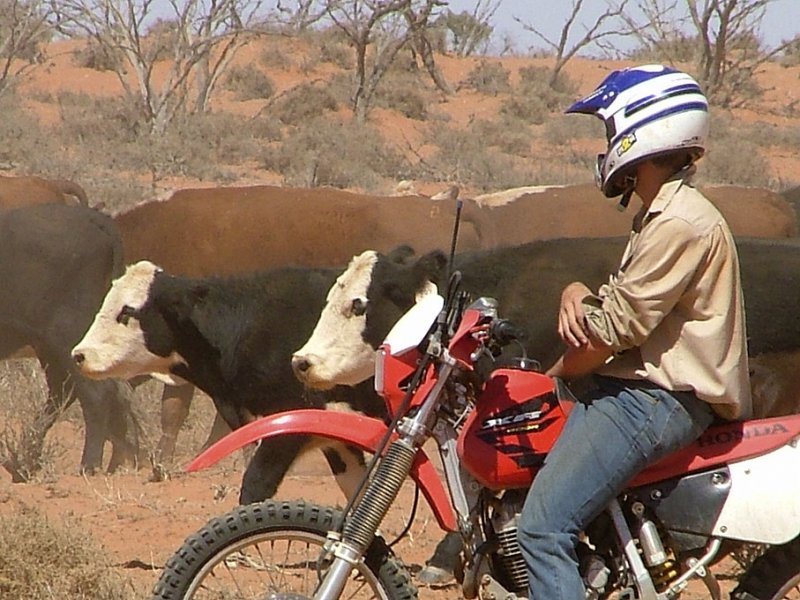Over the past few years I’ve noticed growing interest from many young people keen to make their careers in agriculture. It’s exciting to see so much enthusiasm and excitement about cattle, cropping and agriculture in general. I think it’s a great to see people with passion and excitement looking to make their careers in the industry.
I’m often asked for some tips and advice from young people taking their first steps towards an agricultural career. I know every job is slightly different, and every person approaches situations from a slightly different level of skill and ability, but I reckon there are a few basic tips that might be applicable to anyone heading out to the stations.
There are plenty of tips for young people heading out to stations. One of the best is from the regular blogs that are shared by the stations contributing to the Central Station Blog. So if you are keen to make your way, check those tips out as you prepare. Having said that, a few things have struck me and I think are worth sharing as well.
Tip 1: Be polite and courteous! You’d think that would be a given! But a lot of people these days seem to believe that a resume with their educational achievements and previous employment is all that is needed to secure a position. Actually, your manner and your interaction with your new employer carries so much more weight than the CV. I reckon its important to remember that the opportunity to start your career shouldn’t be taken for granted. Appreciate the opportunities and be respectful of the working environment you hope to enter.
Tip 2: Present yourself well & look after your gear: As much as we would all like to believer that appearance isn’t everything, how you present yourself is often seen as reflection on how you care for yourself and any of the gear you might be trusted with. If you are prepared to take a little time to be neat, tidy and care for yourself, it indicates you’re probably going to look after the equipment you’ve been trusted with.
Tip 3: Learn to Listen and Pay Attention!! No one expects you to know how to do every job straight away! But equally, no one wants to explain how to do things over and over. So when you get a new job given to you, pay attention the first time. Watch, listen and ask questions. Don’t pretend you understand if you don’t get something. If you don’t get it, ask then and there. Its better to ask the first time, then to go off and half do a job or stuff things up because you weren’t paying attention and you didn’t understand.
Tip 5: Don’t expect people to look after your gear! In any job you are going to be trusted with equipment. Some of it might be brand new. Some of it might be older. It doesn’t matter. If you are trusted with something, look after it and respect it! Secondly, if you are using it, you’re responsible for it. So don’t expect the boss to have to re fill water containers, charge radios, or check you have everything for the day.
Tip 6: Look for the jobs you can do to be useful: In any job, there are often little things you can do to make the job a bit easier or quicker for the rest of the team. It could be setting the gates and yards up before the cattle are bought close to the yards. It might be putting on the lunch billy or switching over water troughs. Get used to looking for the little jobs and doing them without being asked to. It helps the team and it makes the job a bit easier for everyone.
Now I know there are plenty of other tips and suggestions. But I reckon these few can be boiled down to the simple ones of be respectful, listen, learn, and ask; help each other and take responsibility for yourself. Be part of a team. These are the skills that you can build a career around. In any job you go to, regardless of it being on a farm, a station or any other field of agriculture, these are the ones that will help you make your mark and lead you to a more rewarding and enjoyable career.




